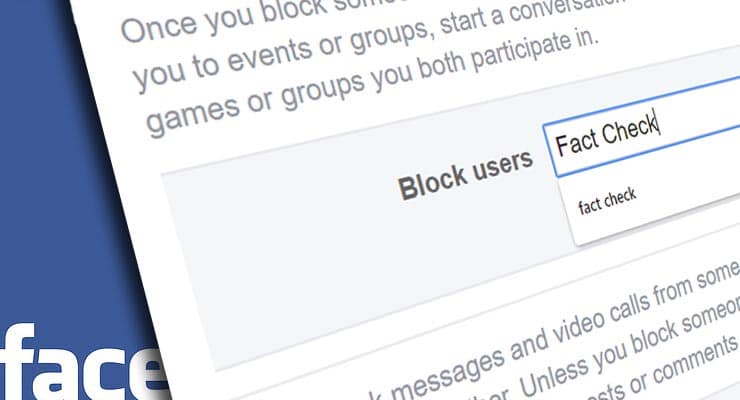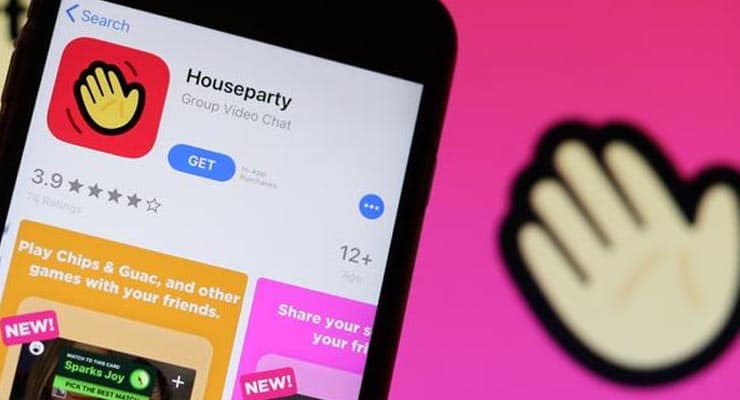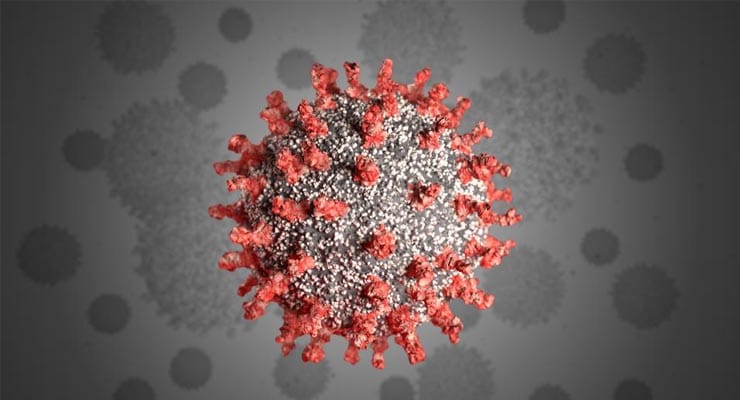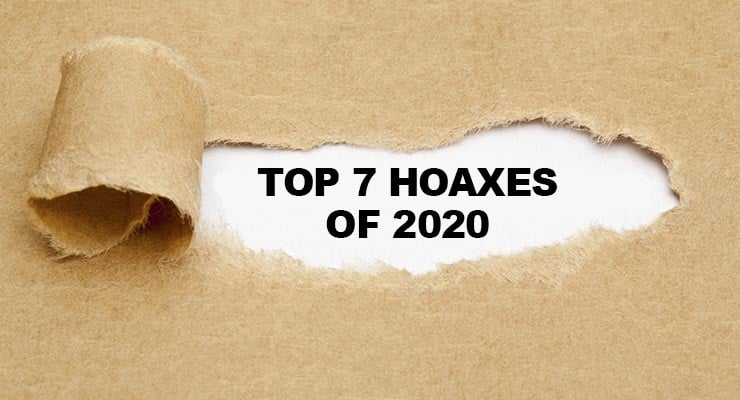The Top 7 Hoaxes of 2020
A year dominated by a pandemic and a US Election was never going to be a quiet year in the sphere of fact checking. Our usual top 5 is now a top 7.
Based on queries, page views and social media engagement, here are our top 7 hoaxes of 2020.
7. Holding Breath for 10 Seconds to Diagnose COVID-19?
Unsurprisingly, there was no shortage of hoaxes and conspiracy theories about COVID-19, and the first entry on this list is the claim that you could diagnose COVID-19 by seeing if you could hold your breath for 10 seconds. Needless to say, this was an overly simplex and nonsensical solution to a complicated disease, and should not be listened to. Our full article is here.
6. Blocking Pages called Fact Check on Facebook

The role of social media and third party fact checkers has once again been pushed into the spotlight in the run-up and aftermath of a contentious presidential election – an election that the incumbent president still does not publicly accept the result of (at the time of writing.)
This led to a rumour that those wishing to “hide” their posts from the scrutiny of a social media fact check could simply block any page that turned up when typing in “fact check” in Facebook’s search bar. It’s actually another permutation of much older hoaxes, and doesn’t make any real sense. We investigated the hoax here.
Sponsored Content. Continued below...
5. Dean Koontz predicted COVID-19?
One of the most prolific COVID-19 hoaxes was the claim that Dean Koontz predicted the COVID-19 outbreak in a book published in the 1980s. This rumour spread in various different permutations, and in many cases included an excerpt from an entirely different book. Also omitted was the fact that Koontz book was originally centered around a virus that originated in Russia, and was later changed to China after the Cold War. Full details are here.
4. A “very sophisticated” Text Message Scam
A viral warning about a “very sophisticated scam” that’s spreading whereas if you click a link in a text message about a failed payment, then you’ll automatically lose everything in your bank. As fake warnings often do, they quote an apparently authoritative entity who have allegedly “confirmed” the scam. In this case that’s the City of London Police. Only they haven’t confirmed it, because it’s inaccurate. See here for more details.
3. House Party App are Hackers?

Amid national lockdowns across the globe, the popularity of video chat apps surged. One of those that experienced massive growth was House Party. This led to claims that the app was hacking user’s devices and other the apps they had installed like Netflix and Spotify.
The rumours were false, and ultimately led to House Party’s owners – Epic Games (also the team behind Fortnite) – to offer a $1 million reward to identify those behind what they described as a smear campaign. More on that here.
Sponsored Content. Continued below...
2. Study Shows Majority of COVID Deaths Took Ibuprofen?
The role of painkiller Ibuprofen has been disputed amid the COVID-19 pandemic, with different entities either recommending or discouraging its use. This led to a spurious claim that a laboratory in Vienna found that the “vast majority” of COVID-19 deaths were found to have had Ibuprofen in their system. This claim was false. See here.
1. Friends Uncle List of COVID-19 Facts

One of the most prolific examples of online misinformation we’ve ever seen arrived in March 2020 as we were still learning about the new pandemic of COVID-19. It came in the guise of an apparent “list” of COVID-19 tips and tricks that – in true urban legend style – had been attributed to a family member of an unknown author who was (apparently) a doctor.
Often false information can travel further if it is intertwined with true information, and that’s what happened here. While this list (which went through a number of different incarnations) did offer helpful advice like washing your hands for 20 seconds, it also erroneously recommended gargling salt water, drinking warm water, breathing deeply and eating fruits as preventative measures. It also oversimplified the symptoms of COVID-19 and how it infects the human body. More details here.
And that’s it for now. Stay tuned for out 2020 quiz of the year later in the week. Other than that, we’ll see you next year for a hopefully more optimistic 2021.
Continued below...
Thanks for reading, we hope this article helped, but before you leave us for greener pastures, please help us out.
We're hoping to be totally ad-free by 2025 - after all, no one likes online adverts, and all they do is get in the way and slow everything down. But of course we still have fees and costs to pay, so please, please consider becoming a Facebook supporter! It costs only 0.99p (~$1.30) a month (you can stop at any time) and ensures we can still keep posting Cybersecurity themed content to help keep our communities safe and scam-free. You can subscribe here
Remember, we're active on social media - so follow us on Facebook, Bluesky, Instagram and X
